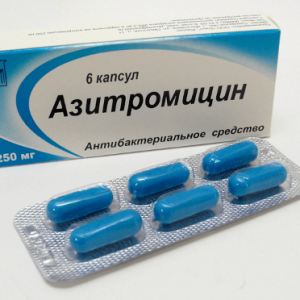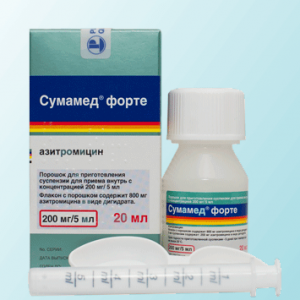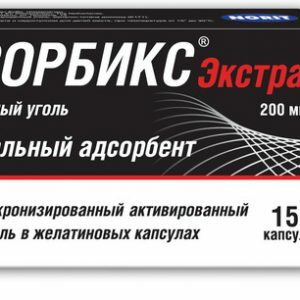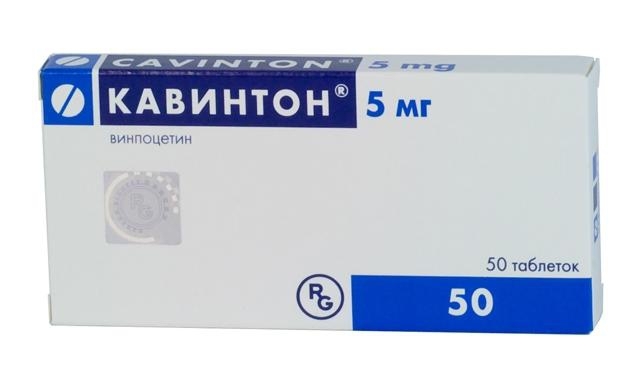Azithromycin in angina: treatment regimen and dosage of the drug
 Azitromcin is an antibiotic from the macrolide-azolid group.It is believed that this group of antibacterial drugs is the most safe.The spectrum of Azithromycin is quite wide, in particular, it is prescribed for the treatment of angina.
Azitromcin is an antibiotic from the macrolide-azolid group.It is believed that this group of antibacterial drugs is the most safe.The spectrum of Azithromycin is quite wide, in particular, it is prescribed for the treatment of angina.
Action of Azithromycin
Angina is an infectious and inflammatory disease of the tonsils that occurs with sore throat, sensation of body aches and high fever.Angina is caused by various microorganisms, most often strepto- and staphylococci.To overcome the disease, it is necessary to influence antibiotics on microbes.One of the often prescribed antibiotics for angina is Azithromycin.If you do not use antibiotics, the infection will remain active.This is fraught with the development of complications of angina with damage to the heart, joints, kidneys.
Azithromycin has a bacteriostatic effect, that is, it inhibits growth and further reproduction of bacteria.This effect is due to the inhibition of protein synthesis of the microbial cell.In large doses, the drug is able to have a bactericidal action, that is, destroy the cell wall of the microbe.
Azithromycin penetrates very well into the soft tissues of the body, here its concentration is several times higher than in the blood.Thus, the drug concentrates in a large concentration directly in the area of inflammation( in the lymphoid tissue of the tonsils, the mucous membrane of the oropharynx in the angina), thereby contributing to the rapid suppression of infection.
Azithromycin has a broad spectrum of antimicrobial activity. Its action is sensitive to such microorganisms:
- Staphylococcus aureus;
- Streptococcus pneumoniae, pyogenes;
- Haemophilus influenzae;
- Legionella pneumophila;
- Clostridium perfringens;
- Chlamydia trachomatis, pneumoniae;
- Mycoplasma pneumoniae and some other microorganisms.
Application features
 Azithromycin is available in the form of tablets, as well as powder for the preparation of a suspension.To drink a tablet is necessary one hour before a meal.After taking the pill, the medicine is well absorbed, and then spreads rapidly through the body.The maximum concentration of the drug is established after two to three hours.
Azithromycin is available in the form of tablets, as well as powder for the preparation of a suspension.To drink a tablet is necessary one hour before a meal.After taking the pill, the medicine is well absorbed, and then spreads rapidly through the body.The maximum concentration of the drug is established after two to three hours.
Azithromycin is prescribed not only for angina, but also for pharyngitis, otitis, sinusitis, bronchitis, erysipelas, impetigo caused by microorganisms that are sensitive to the action of this drug.
Side effects, contraindications
According to the annotation for , azithromycin should not be taken with an increased sensitivity to antibacterial drugs from the macrolide group, kidney and liver failure, while treating with ergotamine.
With caution, the drug is prescribed to patients with arrhythmia, an extended interval of QT, myasthenia.Tableted Azithromycin can be taken only to those children who have reached the age of twelve.For the treatment of young children, Azithromycin is used in the form of a powder for suspension( available under the trade name Summed).
Application of Azithromycin during pregnancy is undesirable.The drug penetrates into the breast milk of .Considering this, during the treatment with medication, breastfeeding should be stopped.
Most people tolerate Azithromycin well.However, the likelihood of developing side effects during treatment with a drug is not ruled out. Possible side effects:
-
 Weakness;
Weakness; - Dizziness, lightheadedness;
- Nausea, diarrhea, flatulence, decreased appetite;
- Change in taste, hearing impairment( deafness), tinnitus;
- Anxiety, restlessness, insomnia or vice versa drowsiness;
- Rapid heart rate, arrhythmia, QT interval elongation;
- Allergic reactions manifested by skin itching, rash;
- Pain in the joints and muscles.
If any adverse reactions occur, tell your doctor .Adverse reactions are unstable and soon disappear at the end of the course of treatment or discontinuation of Azithromycin.
Treatment regimen for angina
Angina is most commonly caused by strepto- and staphylococci.These microorganisms are sensitive to the action of Azithromycin, so this drug is prescribed in the treatment of angina .
Adult patients and children over the age of twelve with angina are prescribed 500 mg of Azithromycin in tablets once a day. The entire course of treatment is not long - only three days.This duration of treatment is explained by the fact that Azithromycin has a long period of excretion from the body.That is, after the completion of the course of taking the tablets, the therapeutically effective concentration of Azithromycin in the tissues persists for another five to seven days.The patient already stops taking the medicine, but it still has a positive effect.
Children over six months are prescribed Azithromycin in the form of a powder for the preparation of a suspension( Sumamed) .The dosage of the medicine for children is calculated taking into account the weight of the baby and is 10 mg / kg of body weight.Duration of treatment is three days.
Grigorova Valeria, medical reviewer



